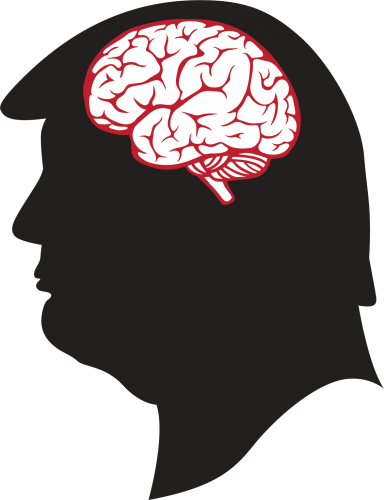
At 70, Trump is the oldest president to hold office. Given his age and his family’s medical history — his father Frank suffered from Alzheimer’s in his 80s — concern over the health of the president has led to concerns. In a recent report by NPR, cognitive testing on presidents for illnesses such as dementia are being discussed in the medical field.
But, a consistent conversation among anti-Trump supporters continually points fingers to Trump’s mental stability as a reason for his unpresidential mannerisms, calling into question why psychiatric as well as medical information on the president have not been released to the public.
The American people have reason to know the health, whether mental or physical, of those holding such a positions of power, but the diagnosis is wary.
It can be seen with past leaders like Woodrow Wilson, who in 1919 suffered from a severe stroke which left him incapacitated until the end of his presidency. Ronald Reagan was diagnosed with Alzheimer’s disease six years after his presidency, but a family dispute questions whether he was showing early signs of the disease while he was in office. Franklin D. Roosevelt was the first president to be in office while having a major physical disability, infantile paralysis, otherwise regarded as polio.
Many speculate about Donald Trump’s odd behavior. His latest policies and harsh rulings on already marginalized people are considered inhumane by some. Previous speculation of Trump’s mental stability have gone back since summer when reports released by the Guardian, Atlantic and Huffington Post questioned him as a psychopath, sociopath even a narcissist. “President Trump’s atypical campaign style and communication behaviors are quite different from the norms established by other presidents,” Gerry Koocher, a psychology professor and Dean of the College of Science and Health, said. “When someone behaves in ways that differ from what others regard as ‘normal’ or ‘politically acceptable’ some people infer mental health problems. Just because we do not like someone or their political views, no matter how intensely, does not translate into diagnosable mental illness.”
To question someone’s mental health takes time and an extensive psychological background, and cannot be judged by an outsider’s perspective. A true psychological evaluation can only take place under a professional in contact and communication with the president, not outsider viewpoints, no matter how educated.
“Psychologists’ ethical code discourages offering diagnoses of a person one has not interviewed or assessed,” Koocher said. “If someone had done a psychological evaluation of the president, the president would have a right of confidentiality and would bar disclosure of any results.” This thought is reinforced by law under the American Psychiatric Association ‘s Goldwater rule of 1973. When running for office in 1964, Senator Goldwater sued for defamation charges after Fact, a magazine in circulation between 1964 and 1967, reported that 1,189 out of 2,417 psychologists questioned claimed Goldwater was not psychologically fit to run for president.
The case, which even reached the level of the Supreme Court, ruled to prohibit the psychological evaluation of a public figure.
To disregard Trump’s actions as consequences of his mental health is to validate his actions, rather impetuously. Viewing his actions as an outsider, though, does not deem onlookers worthy of commenting on the state of his health. But, others are still left questioning the health of our current president.
“This man is not stable and that’s so incredibly obvious in his outward behaviors,” psychology student Amanda Weinper said. “Psychologists are really divided on this issue. On the one hand, if he’s not competent to run the U.S., he should be treated and taken out of office. However, we also only know his public persona so it’s nearly impossible to confirm or deny whether he is suffering from mental illness. It takes time and one-on-one experience to make such a diagnosis.”
Diagnosis can offer explanation, not excuses. If regarded as mentally ill, Trump still is accountable for his actions, which serve to ostentatiously vilify others without recognition of their own lives. As stated by the New York Times, judging Trump as mentally ill would let him “off the moral hook.”
“His age definitely plays a factor in his mental health, with public speculation of dementia. As a society we think that the elderly lacks competence,” psychology major Kara Steiskal said. “As a citizen, I would only be interested in knowing the president’s state of health if it was one that would inhibit or prohibit the president from doing his job. For example, I don’t really need to know if the president is overcoming a cold, but I would like to know if he is battling cancer. If the illness affects his ability to do the job efficiently maybe people should know.”
Mentally ill does not equal self-aggrandizing at the expense of others. Mental illness does not equal insincerity. Mentally ill does not equal destructive, but questioning his physical health is a legit question. Even history has proven this question to be valid.
